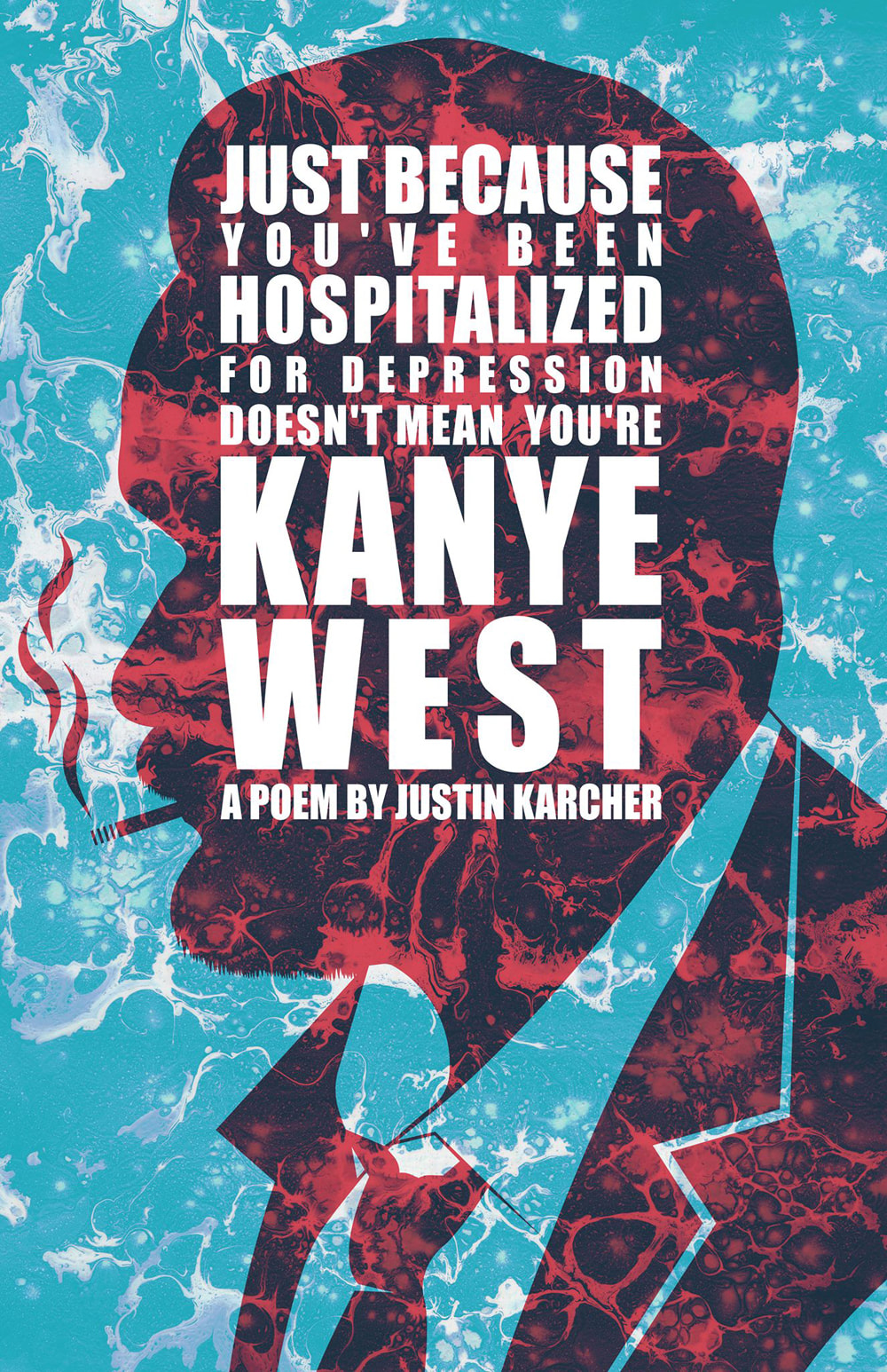|
Justin Karcher gives Buffalo another masterpiece of poetry By Abby Wojcik Buffalo can officially welcome Justin Karcher’s newest poetry chapbook, “Just Because You’ve Been Hospitalized For Depression Doesn’t Mean You’re Kanye West.” Unlike his previous chapbooks, “Tailgating at the Gates of Hell” and “When Severed Ears Sing Songs”, this is one single twenty page poem instead of several short ones joined together. It is similar to his past works in that Karcher has created a work of art to capture and explain aspects of life that are difficult to put into words. On the surface, this poem is about personal and public problems, the struggles of depression and expectations, and the passion for creativity and understanding, all within the setting of beloved Buffalo. Each stanza and line contains a complex mashup of personal anecdotes, symbolism, cultural allusions, and much more. Reading this chapbook is comparable to reading the mind of Karcher and seeing what he really feels about art, mental health, and himself. Karcher explains, “I felt like my writing needed to cut deeper into me, to really expose my insecurities, struggles with depression and failures as a friend, lover, and son. Considering that at the time I was writing this, I was also getting sober, [it] was a huge influence (pun intended) on the work. I needed to be as real as possible - and sometimes real-ness comes off as something utterly and totally bizarre.” At points, this poem can seem choppy and unexpected, as he mentions, but the twists and turns of the mood make it interesting and enjoyable. Karcher writes in the poem, “But the only dungeon you’ve ever been lost in / Is one of your own creation.” Here he creates a self-criticizing tone only to then turn the page and reveal a profound conclusion, “That the things you do for beauty, of poetry, are really just a reflection of your own / insecurities, of not knowing who the hell you are as a person.” The role of art and beauty in his writing are extremely intertwined and connected to his thoughts on social media in today’s world. He references modern popular media(??) such as I Am Legend, Twilight Zone, A Christmas Story, and Siri. He says, “I think poetry is a huge part of pop culture; it's just that a lot of people don't realize it. Pop culture gets its juice from social media. Whether or not you like social media doesn't really matter, because it's a huge barometer of how we gauge what is ‘cool’ and ‘good’ these days. The foundation on which social media like Twitter stands on is quick lines that grab your attention and uses language in interesting ways. Poetry is not dead; it has just evolved. Using these pop culture references allows me to build an obvious bridge between poetry and pop culture, forcing metaphors to flex their muscles in something that we all have in common.” Another method Karcher uses to convey this message is through utilizing the iconic Kanye West in his title and throughout the poem itself. It is Karcher’s opinion that titles are an art themselves and he takes great time and thought into crafting them for this reason. “A good title is that interesting-vibing person you see across the room at a party,” Karcher says. “Deep down you know they'll probably have something riveting they'll rant about. It's almost like they have these bear traps full of honey for eyes and you know your hunger will get caught sooner or later - it's weird to think that way, isn't it? That your hunger is something that someone else has to eat. A good title is the opening of the mouth.” Kanye West plays an important part in Karcher’s poem for several reasons. For one, he is used as a transition tool to move the thoughts in the poem along. He is first mentioned four pages into the work when Karcher reminisces of times when West’s songs would play over and over at parties, making him feel electric, fearless, and immortal. The music would interrupt a thought or memory, bringing Karcher either back to reality or further into the abstract. All powerful and overwhelming feelings are what Kacher associates with Kanye West’s music. The next mention of him comes shortly after, revealing a second reason for writing Kanye West into the chapbook. West is written to act like a holy figure for worship and praise. He writes, “Kayne be with me tonight, I say to myself as I walk through the darkest valley.” It is read like a prayer to the rapper. There are many biblical and religious allusions in the work that contribute to its message. For instance, he writes “Like God Chinese finger trapping Adam into life. / The Chapel roofs we build above our heads on a daily basis are no less magical / Than what geniuses did centuries ago.” The combination of lines like this one, and the times Kanye West is treated like a guardian angel, fashion a message that peace and safety can be found in a variety of places or people. They can be replaced, intertwined, or demolished because nothing is permanent and love is not an exception. Lastly, Justin Karcher explains another reason for incorporating West, which is his own personal love and fascination with the star. “I absolutely adore Kanye and have loved his music for years,” he says. “There's something beautiful about someone using the spotlight as a surgical knife to cut deeper into themselves, which is something we should all strive to do if given the opportunity to shine. The way he has used social media is the same way a poet uses literary devices. For me, he's the patron saint of an evolved form of poetry, a form that specializes in straddling that line between self-indulgence and beaten-down sincerity, a line that I feel all young people straddle.” Karcher explores so much in this poem it is amazing that it is only twenty pages. This latest work of his is only one pebble from the mountain of Karcher’s endeavor to contribute to and innovate the Buffalo literary scene. He is a great and inspiring artist that the public is lucky to have. In addition to reading what Justin Karcher publishes, any interested individuals can encourage his and others’ artistic talents at several poetry readings throughout the city of Buffalo. On Wednesday November 15, there will be a stage presentation of “Just Because You've Been Hospitalized for Depression Doesn't Mean You're Kanye West” at Road Less Traveled, Buffalo, NY. Underneath self-loathing and public violence, Justin Karcher’s poetry reminds us that “Between likes, non-likes, comments, silences, etc., we are constantly self-evaluating ourselves every time we post something online,” as he said. “It is a self-inflicted lobotomy without truth and genuineness. Art corrects this. For poetry to evolve, it must reflect our constant criticism of ourselves and turn it into beauty, into revelation.”  Bio: Abby Wojcik is a current student at Canisius College majoring in English and creative writing. She is the assistant features editor for The Griffin Newspaper. Her hobbies include, reading, writing, painting, drawing, and thinking of ways to make others happy. Comments are closed.
|
AuthorWrite something about yourself. No need to be fancy, just an overview. Archives
April 2024
Categories |

 RSS Feed
RSS Feed
